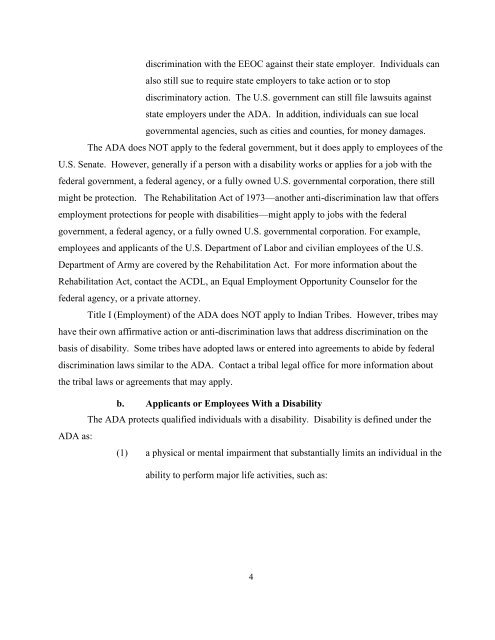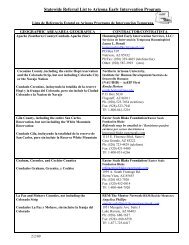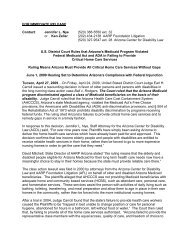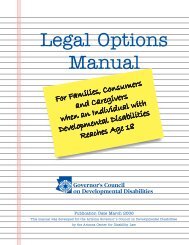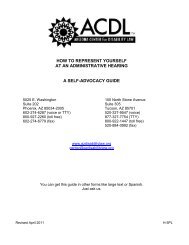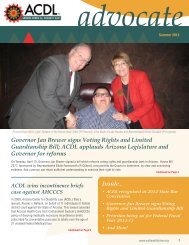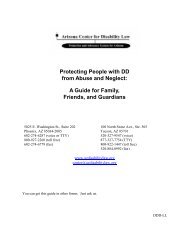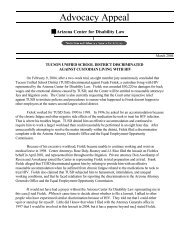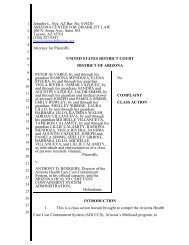How to Enforce Employment Rights Under the Americans with ...
How to Enforce Employment Rights Under the Americans with ...
How to Enforce Employment Rights Under the Americans with ...
Create successful ePaper yourself
Turn your PDF publications into a flip-book with our unique Google optimized e-Paper software.
discrimination <strong>with</strong> <strong>the</strong> EEOC against <strong>the</strong>ir state employer. Individuals canalso still sue <strong>to</strong> require state employers <strong>to</strong> take action or <strong>to</strong> s<strong>to</strong>pdiscrimina<strong>to</strong>ry action. The U.S. government can still file lawsuits againststate employers under <strong>the</strong> ADA. In addition, individuals can sue localgovernmental agencies, such as cities and counties, for money damages.The ADA does NOT apply <strong>to</strong> <strong>the</strong> federal government, but it does apply <strong>to</strong> employees of <strong>the</strong>U.S. Senate. <strong>How</strong>ever, generally if a person <strong>with</strong> a disability works or applies for a job <strong>with</strong> <strong>the</strong>federal government, a federal agency, or a fully owned U.S. governmental corporation, <strong>the</strong>re stillmight be protection. The Rehabilitation Act of 1973—ano<strong>the</strong>r anti-discrimination law that offersemployment protections for people <strong>with</strong> disabilities—might apply <strong>to</strong> jobs <strong>with</strong> <strong>the</strong> federalgovernment, a federal agency, or a fully owned U.S. governmental corporation. For example,employees and applicants of <strong>the</strong> U.S. Department of Labor and civilian employees of <strong>the</strong> U.S.Department of Army are covered by <strong>the</strong> Rehabilitation Act. For more information about <strong>the</strong>Rehabilitation Act, contact <strong>the</strong> ACDL, an Equal <strong>Employment</strong> Opportunity Counselor for <strong>the</strong>federal agency, or a private at<strong>to</strong>rney.Title I (<strong>Employment</strong>) of <strong>the</strong> ADA does NOT apply <strong>to</strong> Indian Tribes. <strong>How</strong>ever, tribes mayhave <strong>the</strong>ir own affirmative action or anti-discrimination laws that address discrimination on <strong>the</strong>basis of disability. Some tribes have adopted laws or entered in<strong>to</strong> agreements <strong>to</strong> abide by federaldiscrimination laws similar <strong>to</strong> <strong>the</strong> ADA. Contact a tribal legal office for more information about<strong>the</strong> tribal laws or agreements that may apply.b. Applicants or Employees With a DisabilityThe ADA protects qualified individuals <strong>with</strong> a disability. Disability is defined under <strong>the</strong>ADA as:(1) a physical or mental impairment that substantially limits an individual in <strong>the</strong>ability <strong>to</strong> perform major life activities, such as:4


